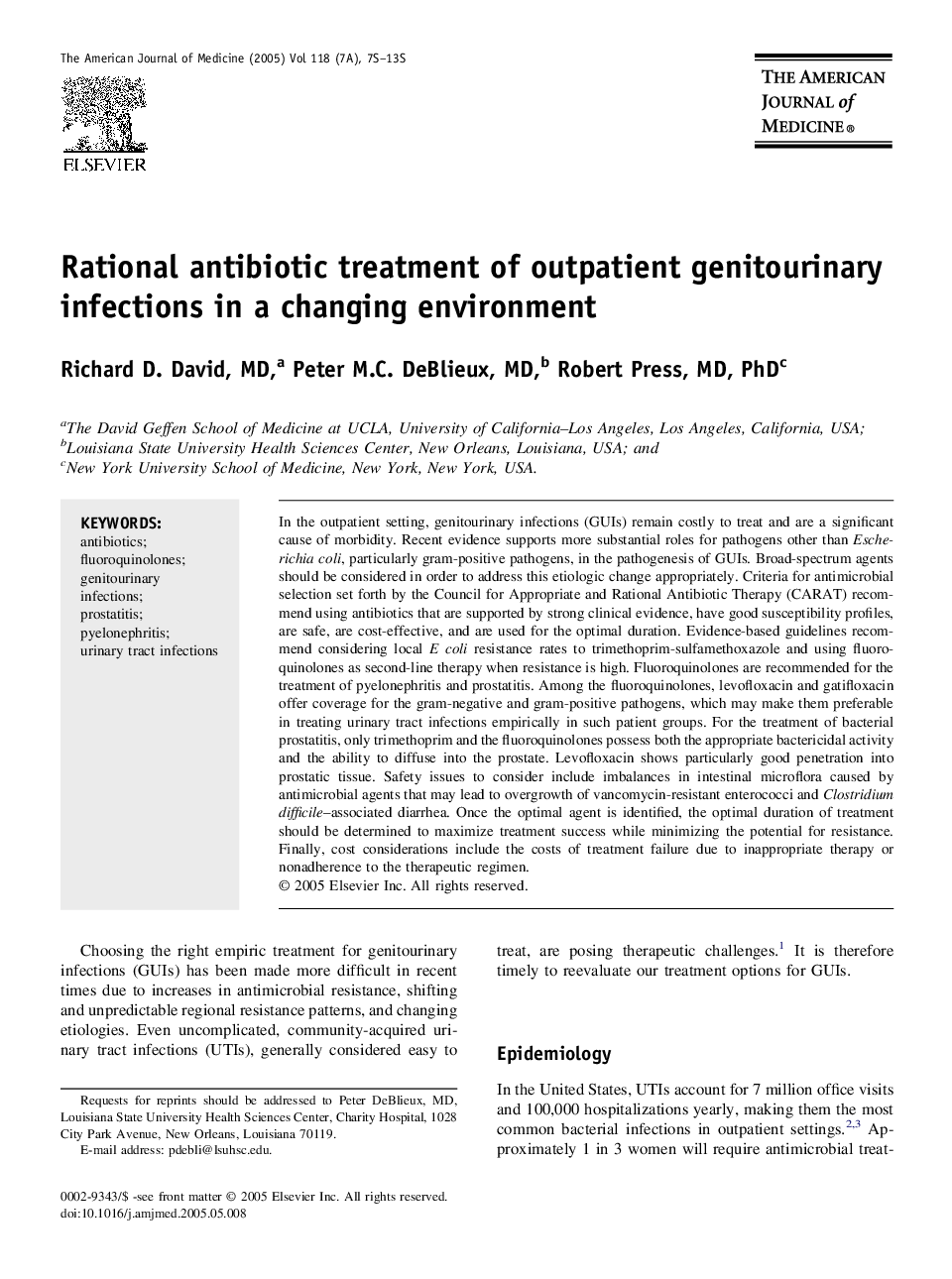| کد مقاله | کد نشریه | سال انتشار | مقاله انگلیسی | نسخه تمام متن |
|---|---|---|---|---|
| 9929445 | 1566301 | 2005 | 7 صفحه PDF | دانلود رایگان |
عنوان انگلیسی مقاله ISI
Rational antibiotic treatment of outpatient genitourinary infections in a changing environment
دانلود مقاله + سفارش ترجمه
دانلود مقاله ISI انگلیسی
رایگان برای ایرانیان
کلمات کلیدی
موضوعات مرتبط
علوم پزشکی و سلامت
پزشکی و دندانپزشکی
پزشکی و دندانپزشکی (عمومی)
پیش نمایش صفحه اول مقاله

چکیده انگلیسی
In the outpatient setting, genitourinary infections (GUIs) remain costly to treat and are a significant cause of morbidity. Recent evidence supports more substantial roles for pathogens other than Escherichia coli, particularly gram-positive pathogens, in the pathogenesis of GUIs. Broad-spectrum agents should be considered in order to address this etiologic change appropriately. Criteria for antimicrobial selection set forth by the Council for Appropriate and Rational Antibiotic Therapy (CARAT) recommend using antibiotics that are supported by strong clinical evidence, have good susceptibility profiles, are safe, are cost-effective, and are used for the optimal duration. Evidence-based guidelines recommend considering local E coli resistance rates to trimethoprim-sulfamethoxazole and using fluoroquinolones as second-line therapy when resistance is high. Fluoroquinolones are recommended for the treatment of pyelonephritis and prostatitis. Among the fluoroquinolones, levofloxacin and gatifloxacin offer coverage for the gram-negative and gram-positive pathogens, which may make them preferable in treating urinary tract infections empirically in such patient groups. For the treatment of bacterial prostatitis, only trimethoprim and the fluoroquinolones possess both the appropriate bactericidal activity and the ability to diffuse into the prostate. Levofloxacin shows particularly good penetration into prostatic tissue. Safety issues to consider include imbalances in intestinal microflora caused by antimicrobial agents that may lead to overgrowth of vancomycin-resistant enterococci and Clostridium difficile-associated diarrhea. Once the optimal agent is identified, the optimal duration of treatment should be determined to maximize treatment success while minimizing the potential for resistance. Finally, cost considerations include the costs of treatment failure due to inappropriate therapy or nonadherence to the therapeutic regimen.
ناشر
Database: Elsevier - ScienceDirect (ساینس دایرکت)
Journal: The American Journal of Medicine - Volume 118, Issue 7, Supplement, July 2005, Pages 7-13
Journal: The American Journal of Medicine - Volume 118, Issue 7, Supplement, July 2005, Pages 7-13
نویسندگان
Richard D. MD, Peter M.C. MD, Robert MD, PhD,